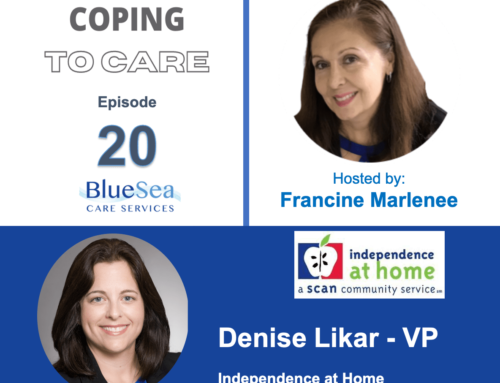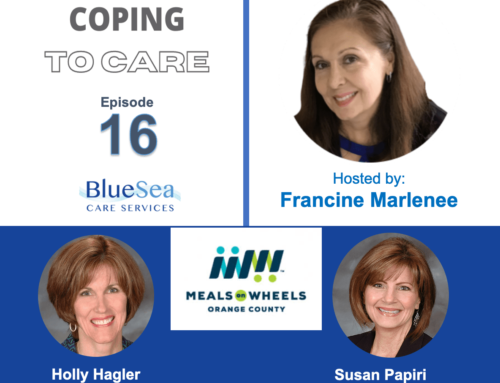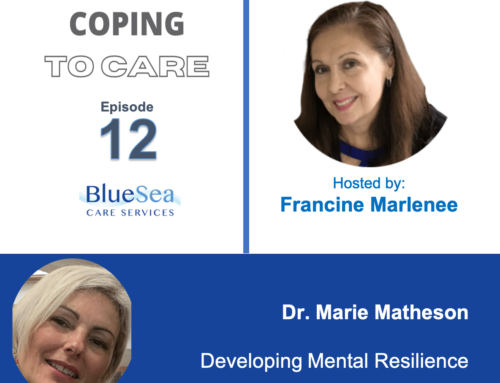Swimming with friends can promote your health and fitness.
Good physical and mental health can improve your quality of life during your older years, especially in combination with home care assistance. In addition to promoting your independence and keeping your body strong and energized, the American Council on Exercise states that physical activity can also prevent or improve age-related conditions, such as osteoporosis and arthritis, and lowers your risk of injuries and health conditions, such as stroke and heart disease. Paired with good mental health, this combination can add years to life.
Move Your Body
The Centers for Disease Control and Prevention suggests that those who are healthy and 65 or older do 150 minutes of cardio a week. You can, for instance, do 30 minutes of cardio, five days a week. If more convenient, you can split this up into three, 10-minute workouts throughout the day. Your exercise intensity should be high enough so you can’t sing along with you favorite tune, but can still talk. Some exercises you can do include walking, bicycling, swimming, water aerobics and dancing. Everyday activities, such as gardening, playing with the grandkids or cleaning the house can also be part of an active lifestyle, even if you receive home care assistance.
Strengthen Your Body
Working against resistance doesn’t just strengthen your muscles, it also strengthens your bones, reducing your risk of fractures. Your risk of falling reduces as your balance and stability are likely to improve. As you age, you lose muscle tissue, which can slow down your metabolism. Resistance training combats this. The CDC favors strength training on at least two days of the week. They suggest at least one set of eight to 12 repetitions, and if you’re up to it, slowly adding two more sets. Exercise examples include chest presses, biceps curls, overhead presses, lateral raises and knee or wall pushups. Many of these exercises can be done with dumbbells or a resistance band, and while sitting on a chair.
Exercise Your Brain
In addition to keeping your body healthy and strong, you should also keep your brain in tip-top shape. As you age, it might take longer to remember things than it did when you were younger. By exercising and challenging your brain, you can stay sharp and prevent memory problems and cognitive decline. Solving crossword puzzles and playing word games can help, as can learning a new skill and switching around daily tasks. You can take a computer class, experiment with different recipes when you cook, take a different route to the grocery store or brush your teeth with your non-dominant hand.
Things to Consider
Consult your doctor before starting a new exercise routine to ensure your planned regimen is safe for your physical condition. Always gradually start exercising, and as your fitness improves, slowly increase the duration and intensity. Start your workouts with a five- to 10-minute warm-up to get your blood flowing and prep your body for the work to come. Find activities that you enjoy so you’re more likely to stick to your routine. Your local community center might offer various classes, such as yoga and tai chi, which can help promote your flexibility while you enjoy the company of other health-conscious adults. Even if you receive home care assistance, combining healthy habits allows you to stay healthy longer.







